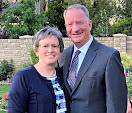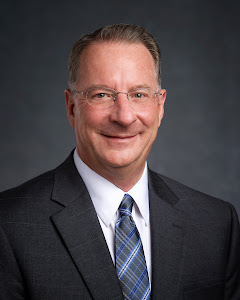Darrel L. Hammon
 |
| Darrel and Joanne in their cool helmets |
Well, we did it! We bought
bicycles. Both are Schwinns: Joanne’s is sky blue, and mine is dark navy blue.
Both have 21 speeds although we doubt we will ever use all of them. My first
and only bike was a red Schwinn my dad bought me when I was eight-years-old,
and I remember the ton of fun I had, driving all over Menan, down to Spring
Creek to fish, then down to the Snake River, and down all of the back roads.
 |
| Joanne and her beautiful sky blue Schwinn |
These two Schwinns are classified
as “hybrids,” which basically means they are a cross between a road bike and a
mountain bike. We guess that means we can ride them in the mountains and on the
road—perfect for Pleasant Grove, since we live on a hill and have to ride
downhill to get to the bike path. So, I guess we are using the “hybrids” the
way they were meant to be.
We don’t ride them every day.
Joanne has us on two exercise regimes: a bike routine on Mondays, Wednesdays,
and Fridays; and a walking routine Tuesdays, Thursdays, and Saturdays. Sundays
continue to be our day of rest in so many ways.
 |
| Darrel with his Schwinn |
So, on Monday mornings, we don our
helmets, cool sun glasses, and head for the bike path. That means we speed
downhill to the bike path. Compared to walking, I am amazed how fast we can go
downhill. Of course, we know—and sometimes cringe at the thought—that we will
have to come back up. But no matter which way we start out, we still have to
climb back up a hill. For some reason, the zooming down the hill temporarily erases
the thoughts of climbing back up.
 |
| A barn along the way |
We have gone both ways on the bike
path, one way goes toward Provo and the other way goes toward Lehi and
Highland. I think the bike path is about 17 miles long. It used to be a canal
that weaved its way through the small communities along the mountainside. A couple
of years back, they laid tube so the canal could still be used, paved it, developed
a bike path on top, and named it the Murdock Canal Trail. It is a wonderful addition to the community. Many communities
are moving this direction, which I applaud. All communities, if they truly want
their community members to be fit and create an atmosphere of progress, should
put in a greenbelt that accommodates runners, walkers, and bikers.
 |
| Some of the scenery along the way |
Our longest ride has been about
nine miles. Of course, we are just beginners. The bike path is pretty easy. The
people are extremely friendly. Whether people are walking, jogging, or biking,
they always say hello. Many people bike to work; families walk or jog; others
walk their dogs; and then bikers race up and down the path. We don’t race;
rather, we are more like bike saunterers.
 |
| Grain elevators down by the little pond |
One day, we rode to a little
man-made lake and took a breather. People were fishing on one end of it. A
family in our Church ward told us they had gone there for a picnic and to fish.
Their children loved it.
 |
| The Pond |
Now, the challenging thing about a
bike ride in Pleasant Grove is that you have to ride up a hill to get back
home. It doesn’t matter which way you return home. There is always a hill, and
the hill varies in the steepness. But, alas, they are still steep hills.
 |
| One of the hills and a pretty long shadow |
The first couple of times, we didn’t
ride all the way up the hill. It was too steep and difficult. The last couple
of times, I have ridden all the way without stopping. Of course, I was in first
gear. By the time I arrived home, I was tired, my legs were tight and aching, and
breathing came hard. I guess the hill climb pushes the heart to pumping speeds to
get the most out of an exercise.
 |
| Am I still alive? |
Overall, we are having fun riding
our bikes. We enjoy the camaraderie, zooming down the hill, and then the
arduous task of pedaling back up hill. We are still getting used to the helmets
though, but Emiline, our granddaughter, thinks we look “cool” in them.

























